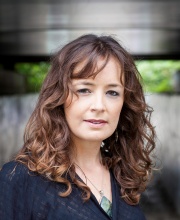Jess Kennedy FICRS - Associate Director, Sustainability, Arup
How did you get into CRS, and why did you choose this profession?
I had always been actively involved in local environmental and social issues - for example becoming a volunteer English tutor to Sudanese refugee children, teaching free music lessons at a local council estate, attending community environment meetings.
This background led to me undertaking a double degree at the University of Melbourne – a Bachelor of Environmental Engineering, which provided a strong technical background in environmental design, and a Bachelor of Arts focused on Geography, which gave me a broader insight into the political and social aspects of sustainability. I also threw in some cinema studies and criminology subjects as part of my Arts degree for a bit of variety.
I began my career as an environmental consultant in Melbourne, developing my skills through a variety of environmental management and environmental impact assessment projects. I soon realised my interest lay in working with companies at the corporate level, enjoying the interactions with different parts of the client’s business, the opportunities for creativity, the strategic thinking and ability to drive change that this work presented.
Moving to London twelve years ago, I have since focussed on a consulting career working with major corporates on sustainability strategy and corporate responsibility.
Describe a typical day in your current role
One of the things I enjoy most about my work in consulting is the variety it brings, and the insights I gain from working with different clients and sectors. My days are generally very people focussed – and may involve client liaison, facilitating a sustainability workshop with senior directors of an organisation, working collaboratively with my team to develop a strategy for a client, or presenting at an industry event.
If you didn’t work in CRS, what would you do? Be as far-fetched as you like!
My other passion in life is music, and if I had followed a different path I may well have given full-time composing a go. Luckily, I have still been able to pursue my music alongside my CRS work, playing and writing both solo music and in bands (jesskennedymusic.com).
I value my creative background as I believe it helps with my CRS work, particularly in relation to strategy development and stakeholder engagement. The closest I’ve come to combining my music and CRS work is writing the music to a Wild West End video (http://www.wildwestend.london/). Hopefully I will continue to find more ways to bring the two worlds together!
Which professional project or achievement are you most proud of?
One of my proudest achievements is my role in creating the partnership Wild West End, bringing together the largest property owners in London’s West End to increase the amount of green space and achieve associated benefits to wellbeing and biodiversity. The partnership has won multiple awards for biodiversity, strategy and partnership working, and continues to inspire others around the world. As part of its work, the partnership monitors bird, bat and invertebrate activity, and I find it particularly rewarding seeing the smiles on people’s faces as they find out about the local wildlife sharing their environment.
What is the most challenging part of your role?
What is most challenging, and also what perhaps interests me most in this work is how to drive change - how to influence people’s hearts and minds, particularly in senior management, to want to work together and find new ways of doing business that benefit our environment and society.
What do you think are the most important skills for working in CRS?
I think being a good communicator is key in this profession. And this includes the sometimes overlooked skill of listening – listening to the client to properly understand their business drivers and concerns, listening to different stakeholder views and perspectives, listening to new ideas from your team and industry.
Development of a successful CRS strategy requires systems thinking, and the ability to draw from a robust, science-based approach. However in addition, a strategy is only as good as its implementation programme, and that is where leadership skills, the ability to inspire and gain buy-in and the tenacity to see it through become vital.
What advice would you give to others on getting into CRS?
Get involved! Depending on where you are at in your career, there are various routes in. My first steps into CRS were through work experience placements, which helped me understand what the work entailed and whether it was for me, and also created connections that helped me find my first position. If you are already established in your career, look for ways to incorporate sustainability thinking into your current role. That may end up being the most effective way you can make a difference, or it may be a stepping stone to a CRS role later down the track. Get involved in industry bodies such as ICRS to network and gain new knowledge and skills. And don’t forget to look at your own home, lifestyle and community to find ways to drive change and walk the talk.
You can find Jess on LinkedIn here

